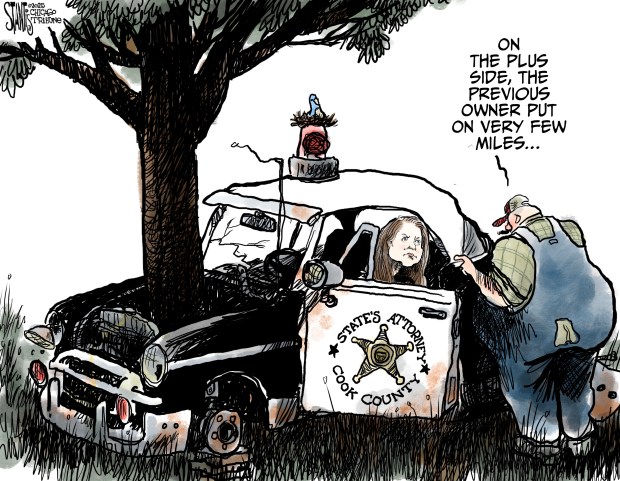Everyone is worried about Chicago’s current gun violence crisis. I am too. But I also worry we’re missing the next gun violence crisis developing right in front of us, as a result of unresolved pandemic learning loss.
All the best social science data confirms something everyone already knows: The best protection against violence involvement — as well as poverty, poor health, etc. — is a high school diploma.
Parents, imagine locking your kid in a closet for half a year instead of sending them to school. That’s basically what the pandemic did to their learning. For the most disadvantaged kids, the effect was even larger still.
That’s a problem because it means the hundreds of thousands of Chicago children who were of school age during the pandemic are now at much higher risk of missing developmental milestones that are key for staying on track to a diploma. If a kid can’t read by the end of third grade, their risk of dropping out increases by a factor of four. If they haven’t passed algebra by the end of ninth grade, the dropout risk increases by a factor of five.
If we don’t fix this — soon — the result will be thousands, maybe tens of thousands, fewer high school graduates in Chicago. For the kids who are affected, that means lifelong harm to earnings, wealth, health, homeownership and retirement security. For the rest of the city, it means more crime — including more gun violence.
For the city as a whole, it also means less tax revenue available to help solve not just gun violence but also every other problem the city faces, since the education level of a city’s residents has become one of the strongest predictors of economic growth.
The good news is that the solution for accelerating student learning is known. In fact, it’s been known since at least the 15th century at Oxford University: high-dosage tutoring. Some of the work we’ve done at my research center, the University of Chicago Education Lab, together with Chicago Public Schools and Saga Education, shows that what works at Oxford can also work on the South and West sides of Chicago: Tutoring can double or triple what students learn over the year.
The bad news is that Chicago doesn’t have nearly enough money to deliver tutoring to all the kids who have been harmed by the pandemic, and time is running out. It might be a surprise to hear that there isn’t enough money. After all, the federal government gave school districts $190 billion in pandemic relief funds. That sounds like a lot of money. But that funding was spread out over multiple years and on a per-year basis turns out to be just a tiny increase in annual K-12 spending in the U.S.
We can see the consequences of this here in Chicago. CPS has been a national leader in the use of high-dosage tutoring. But the federal funding is covering only $25 million per year for tutoring, equal to one-third of 1% of CPS’ total budget. While that can improve the lives of thousands of some of the city’s most disadvantaged children, there are tens of thousands more who could benefit — who need to benefit — but currently can’t be served.
Unresolved pandemic learning loss is the biggest problem no one is talking about. To not solve it would be to harm a whole generation of children. To not solve it would be to ensure that Chicago voters 20 years into the future continue to list gun violence as their No. 1 concern. To not solve it by making the necessary investments now, while we still can, would be the very definition of penny-wise and pound-foolish.
Jens Ludwig is the Edward A. and Betty L. Bergman Distinguished Service professor at the University of Chicago, Pritzker director of the University of Chicago Crime Lab and co-director of the University of Chicago Education Lab.



